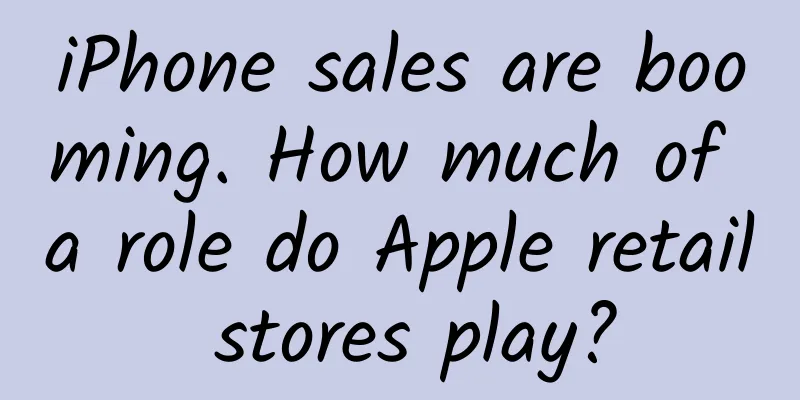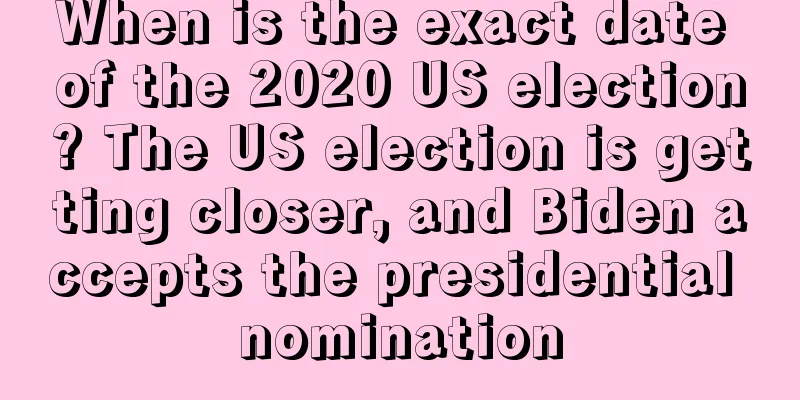iPhone sales are booming. How much of a role do Apple retail stores play?

|
Not long ago, Apple released its latest quarterly data, which showed that in the first quarter of 2015, Apple's revenue was $58.01 billion and its net profit was $13.569 billion, up 33% from $10.223 billion in the same period last year. In the first quarter, Apple sold 61.17 million iPhones. This quarter, iPhone sales in China surpassed those in the United States for the first time, which was enough to make Cook happy. More than half a year after the release of iPhone 6, its sales continue to be hot. The overlooked factor behind this may be the promotion of Apple's retail store system. Apple's retail store sales restructuring reform, store opening speed coincides with sales growth The industry has analyzed enough reasons for Apple's hot sales. For example, Apple's high-end brand attributes are brought about by technological innovation and unparalleled hardware and software integration. However, the industry may have overlooked the role of Apple's retail stores, which have been shaping a kind of soft power in brand culture and constantly penetrating into various regions. Apple has more than 450 retail stores around the world, and more than 1 million customers visit Apple retail stores every day. There are 21 stores in China. In the Shanghai Apple retail store, the daily average number of visitors exceeds 25,000. You should know that in 2013 alone, 20% of iPhones were sold through Apple Store retail stores, but Cook was not satisfied. His expectation was 50%. Therefore, we can see that from last year to the first quarter of this year, Apple's retail stores have grown rapidly around the world in 2014. Its sales-first strategy has played a significant role in promoting Apple's brand and reputation. Although Apple has not released the sales data of iPhone 6 in retail stores, its role as a pioneer in promoting sales is unquestionable. In China, the middle class is growing, and the demand for taste and style is also growing. In June 2014, Apple just found Angela Ahrendts, the former CEO of British luxury company Burberry, to serve as the head of Apple's retail and online stores to further build the brand tone of luxury goods, which even caused Burberry's stock price to fluctuate. After she took office, she made large-scale changes to Apple's retail stores, generally following Cook's expectations for retail store sales, and reorganized the retail store system based on sales, simplified the operation of Apple's retail links, and focused on customer satisfaction, and was committed to improving the sales capabilities of retail stores. On this aspect, we can see that in the Cook era, Apple launched a trade-in program in its retail stores, and even whenever Apple released a new iPhone, its retail stores would cancel holidays and work at full capacity. It is understood that Angela Ahrendts is also strongly promoting attention, payment and customer experience in the Chinese market at the strategic level, and plans to add more retail stores in China. For example, we have seen that under the promotion of Cook and Ahrendts, Apple has begun to cater to the tastes and tonality of Chinese customers. In China, offline retail stores have grown rapidly from last year to this year. Data shows that Apple has opened 19 direct retail stores in mainland China. During the Spring Festival last year, Apple quickly opened 5 retail stores in Chongqing, Zhengzhou, Hangzhou, Tianjin and Shenyang. In Apple's history, the speed of opening stores in a single country or region is unprecedented in China. According to sources, 4 more stores will join the opening team in the near future. According to the figures previously revealed by Cook, more than 20 direct stores will be unveiled in the next two years. Therefore, we found that behind Apple's hot sales in China is the rapid expansion of Apple retail stores in major cities in China. You know, in China, many middle-class people with growing incomes are still not used to buying high-end mobile phones through e-commerce. They pay more attention to the relatively high-quality and noble experience offline, and Apple retail stores just meet the psychological and cultural needs of the domestic market. Apple retail store service experience, iOS promotion system, and ecological payment standards are constantly improving At the same time, Apple retail stores are constantly improving their gold standard for customer service, such as allowing retail staff to provide unconditional help to customers without forcing them to buy products, and listening to user needs and demonstrating and explaining product functions. Secondly, improve the mobile payment services of Apple retail stores and online and offline mobile applications. For example, by incorporating UnionPay cards into the Apple ecosystem, App Store users can use UnionPay card payment services to purchase various application products. Therefore, in Apple retail stores, consumers do not have to queue up to pay. For those customers who do not want to be frequently disturbed, they can buy products by themselves and leave, bridging the gap between offline and online shopping experiences. In addition, it should be noted that for Apple, adding new retail stores is also an offline expansion of the ecosystem. We have seen that Apple retail stores also serve as a window for software system promotion. For example, when Apple retail stores upgrade their iOS system, the KPI of Apple retail stores also includes going all out to display and promote iOS7 to users. It can be said that the promotion of retail store staff should also be credited for the word-of-mouth expansion of Apple's iOS system. We also found that every time Apple releases a new product or opens a new store, Apple fans line up in front of the retail store early, because they can get a relatively good consumer experience here, including store design, user experience, technical services, and Apple's artistic atmosphere and culture. In short, it is a high-end experience, which makes users more likely to maintain emotional identification and loyalty to Apple. This loyalty prevents them from easily switching to competitors such as Samsung, China Cool Alliance, and Xiaomi. On the other hand, the brand image penetrates the local economic and commercial circles. We see a pattern that wherever a store is opened, Apple's brand image is also rapidly penetrating into the core economic and commercial circles of the region, and its iPhone sales are also soaring at the same time. The decoration style integrates local culture. Apple retail stores use style and artistic atmosphere to create brand premium As mentioned earlier, Apple's high-end brand attributes are brought about by its technological innovation and unrivaled soft and hard integration ecosystem. However, from the strategic purpose of Apple's offline retail stores, that is, "good wine needs no bush", Apple creates such a direct marketing window to show its advantages, artistic atmosphere and culture, and builds it into a place for brand association. When it comes to culture, Apple is undoubtedly an international technology giant that understands China better. At present, we see that Apple retail stores are constantly integrating local culture and reflecting it in decoration style and purchasing experience. According to relevant information, the front of the Hangzhou West Lake store is composed of 11 14.5-meter-high glass curtain walls, and the cost of each piece is at least 200,000 yuan. In addition, the store is equipped with imported, costly solid wood tables, aluminum alloy ceilings, etc. But the key point is that Apple retail stores in China complement Chinese culture. For example, when the Hangzhou West Lake store opened, Wang Dongling, a calligrapher, wrote Su Shi's poems on the exterior wall of Apple. Chongqing Apple retail store opened, and the interior has a Chongqing watercolor painting of "Liangjiang Lijing" as a fence decoration. This design, which integrates with local culture, narrows the psychological and cultural distance with local citizens and reduces cultural barriers. In addition, Apple retail stores have always been an important part of Apple's offline brand system, so we can see that Apple stores use a luxurious decoration style to make Apple devices more attractive. Customers who buy devices in them are undoubtedly attracted by the style of these stores. The centripetal force of the brand and user loyalty often come from these external packaging and styles. Revelation: Domestic mobile phones lack the high-end brand culture that can be touched and perceived This may be a revelation for domestic mobile phones, that is, China Cool Alliance has been weak in its impact on the high-end market for a long time. One reason is that it lacks such a window to showcase and enhance high-end brand attributes and associate them with them. The influence of a brand always needs to be touched, experienced and perceived offline. The problems of domestic mobile phones in recent years have been about Internet thinking and cost-effectiveness, or learning from Xiaomi to become an independent e-commerce brand. However, this model can capture low-end and mid-end users, but it cannot give people a direct impact in the high-end market, because high-end customers need experience rather than price. You know, high-end mobile phones must have the value attributes of luxury goods, and there is no luxury brand in the world, from Tiffany to Coach, that does not open offline experience stores. The problem with domestic mobile phones is that they lack a brand culture that can be directly touched and perceived offline, which leads to the fact that their brands have not been implemented and are nowhere to be found. For example, the Xiaomi brand has always lacked a driving force to push the brand into the high-end market. Samsung, for example, once had the ability to impact high-end brands, but due to the weak perception of high-end brand attributes offline, its decline was often instantaneous and had no staying power. An industry insider once even said: Samsung lacks a little culture compared to Apple. Apple continues to open new retail stores in one city after another, and continues to maintain the height of its brand by creating a vane of urban charm. Even Apple's location selection is the core business district of the local city with the largest passenger flow. For example, West Lake in Hangzhou and Sanlitun in Beijing both have the advantage of location. It influences the largest passenger flow by stationing in the most expensive commercial area of a city, thereby expanding its brand and reputation, and making customers indulge in the palace-like offline retail stores and stay for a long time. It is conceivable that if Apple lacks retail stores, which can convey its artistic atmosphere and brand awareness, its brand influence will be greatly reduced, and at least its cultural connotation will be much thinner. However, the risks of Apple's retail stores are also obvious. Once the sales and profits of its mobile phones cannot keep up, the high costs of its rapidly growing and increasing number of retail stores around the world will become a drag and burden on its own profits. However, in general, retail stores are an offline model worth learning from and referring to in the process of domestic mobile phones shaping high-end brands. If domestic mobile phones want to shine in the high-end market, they might as well learn from Apple's soft power - to create a vanguard to promote sales and brands, to shape brands with retail store culture, to touch people's hearts, and to conquer cities. As a winner of Toutiao's Qingyun Plan and Baijiahao's Bai+ Plan, the 2019 Baidu Digital Author of the Year, the Baijiahao's Most Popular Author in the Technology Field, the 2019 Sogou Technology and Culture Author, and the 2021 Baijiahao Quarterly Influential Creator, he has won many awards, including the 2013 Sohu Best Industry Media Person, the 2015 China New Media Entrepreneurship Competition Beijing Third Place, the 2015 Guangmang Experience Award, the 2015 China New Media Entrepreneurship Competition Finals Third Place, and the 2018 Baidu Dynamic Annual Powerful Celebrity. |
<<: Apple abandoned its Apple TV plans a year ago
>>: Is Nintendo the terminator of game consoles?
Recommend
Xiaohongshu promotion and operation content strategy!
I have to say that the speed of development of th...
Curious questions for the Year of the Snake! Explore the most "snake"
Review expert: Wang Lei, National Park and Nature...
How to operate an App from Fenda
1. Introduction Looking back, from the popularity...
Not too hot, and still chewy, are cold Yuanxiao so delicious? I advise you not to eat it this way!
Happy Lantern Festival! Is it time to eat Yuanxia...
Why do Android devices become stuck after being used for a long time and Apple devices crash after being used for a long time?
Generally, after using a mobile phone for about t...
Breaking down the planning logic of big promotion membership activities!
1. Case Study Xiao Ming has been signing in at a ...
Apple releases latest operating system, Siri can learn to quack like a duck
As long as you upgrade to Apple’s latest iPhone o...
APP promotion: How to cultivate core users!
Why do you want to be a core user? What is the ul...
Changhong leads the intelligent transformation of the air-conditioning industry from the perspective of Feizhu theory
Lei Jun, the founder of Xiaomi, once said a famou...
The advertising volume is not ideal? Facebook advertising optimization in practice!
There are thousands of problems with advertising,...
A comprehensive marketing plan for Mid-Autumn Festival and National Day!
September and October are the golden months, and ...
Half-hour comic book on Chinese history: Mythological China (1)
Mixed Knowledge Specially designed to cure confus...
If Jupiter changed its orbit, would Earth become more habitable?
Image: Size comparison of Earth and Jupiter A new...
If you are sick, can intravenous infusion help you get better quickly? The answer may not be what you think
Author: Zhao Zhigang, Chief Pharmacist, Beijing T...
How are rental and living subsidies distributed to college graduates in Changsha? Attached application guide
How to apply for housing rental and living subsid...






![[New Technology] Tips for Douyin to copy and paste content without processing, post a work within 30 seconds to avoid illegal ratings and pass Doujia in seconds](/upload/images/67cc3b405db3e.webp)


